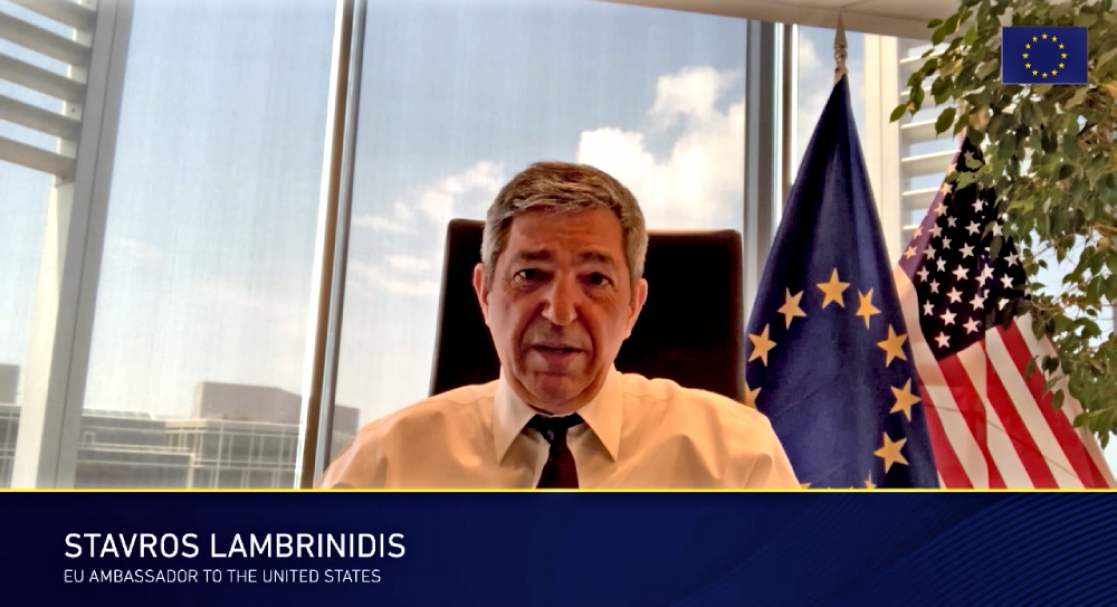Path to Energy Efficient Economy Runs Through Buildings

Buildings and the built environment are critical elements of our modern infrastructure, and their energy use makes them a crucial element to ensuring a swift transition to a lower-carbon planet.
The role of buildings in this transition was the focus of a transatlantic exchange, “Energy Efficient Buildings for a Sustainable Future” organized on May 26 by the European Union in partnership with the California Energy Commission, the Embassy of Belgium in Washington, and the Consulate General of Denmark in Silicon Valley. To hear from all the speakers, view the event recording here.
“Today, buildings are responsible for about 40% of global energy consumption and emit about one-third of global greenhouse gas emissions,” said EU Ambassador to the United States Stavros Lambrinidis. “Buildings offer the greatest potential for achieving significant greenhouse gas emission reductions at the least costs. By using proven and commercially available technologies, energy consumption in buildings can be reduced by 30-80%.”

To achieve climate neutrality by 2050, the EU, together with the Member States, are embarking on bold undertakings to boost sustainability in buildings. The EU Green Deal and the COVID Recovery Plan for Europe prioritize energy efficiency as key to clean energy transition, and the renovation wave strategy aims to double the annual renovation rate of buildings in Europe by 2030, resulting in 35 million existing buildings becoming more energy efficient.
Acting U.S. Assistant Secretary for Energy Efficiency and Renewable Energy Kelly Speakes-Backman said that the path to a net-zero economy runs through buildings. Currently, buildings in the United States waste one-third of the energy they consume, highlighting the opportunity for significant sustainability improvements that can be made in this sector.
Speakers ranging from architects practicing passive house design to policy makers and housing advocates discussed the range of issues dealing with energy efficiency in housing, including practical policy suggestions – implementing retrofits and upcycling projects, the importance of building codes and data collection, as well as the need to ensure that the transition to a lower-carbon future is carried out with an eye toward social justice.
“We will not achieve sustainability without widespread access to clean energy, and we must enable access to high quality, energy efficient affordable housing if we are to realize a just and equitable transition,” said California Lieutenant Governor Eleni Kounalakis.

As communities around the world work to meet important targets in their emission cuts, the EU is determined to play a leading role not only in this effort, but also in ensuring that international partners are engaged and informed on the best practices for achieving sustainability aims. Toward these aims, the EU is launching six transatlantic dialogues on energy efficiency and decarbonization of buildings. These six webinars will target innovations, successes, and lessons learned to stimulate the massive investment and deployment needed particularly in underrepresented regions to reach the Paris agreement ambitions. To stay up to date on this and other initiatives, sign up for the EU’s Top 10 weekly guide to transatlantic news and events.
